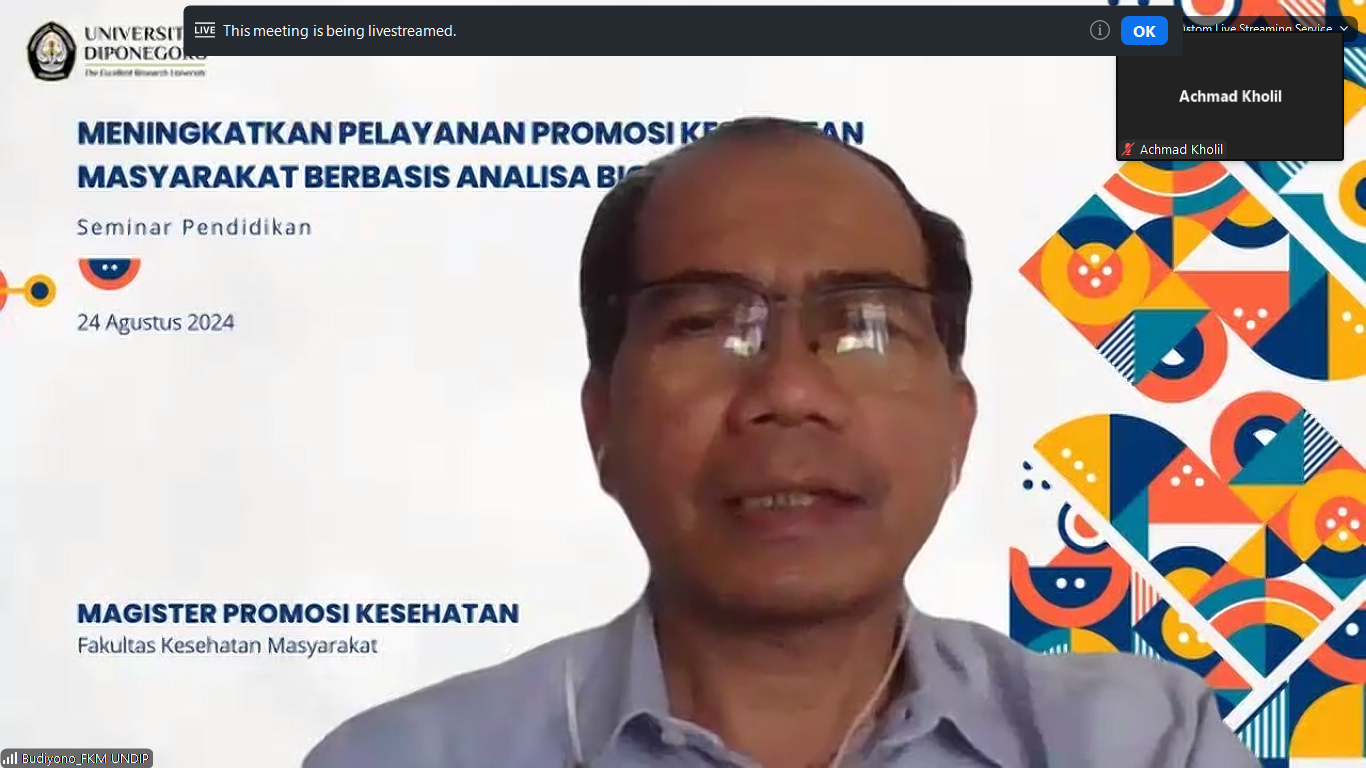Semarang, The Master of Health Promotion program, Faculty of Public Health (FKM), Universitas Diponegoro (Undip), held an online educational seminar titled “Improving Public Health Promotion Services Based on Big Data Analysis” , featuring Dr. Eng. Wisnu Ananta Kusuma, ST., MT., from the Bioinformatics Department, Faculty of Mathematics and Natural Sciences (FMIPA), Bogor Agricultural University (IPB). The event was opened by the Dean of FKM Undip, Dr. Budiyono, SKM., M.Kes., who stated that one way to address increasingly complex health challenges is through the ability to understand and analyze big data for the benefit of the broader community. The use of tools such as machine learning is essential to produce evidence-based information, decisions, or policies that will ultimately improve community well-being.

Dr. Drs. Syamsulhuda B. Musthofa, M.Kes., Head of the Master of Health Promotion program at FKM Undip, emphasized in his opening remarks the importance of big data as a crucial pillar in various sectors, including public health. Through this seminar, it is hoped that insights and solutions will emerge on how big data analysis can become a powerful tool to improve the quality of health promotion services, both locally and nationally, and potentially even internationally.

In his presentation, Dr. Eng. Wisnu Ananta Kusuma explained that big data is characterized by five main elements, known as the 5Vs: volume (a large amount of data), velocity (the rapid speed of data changes), veracity (the accuracy and speed of data collection), variety (data available in various formats), and value (useful insights or patterns generated from the data). These insights play a crucial role in decision-making, including in public health.
Dr. Wisnu highlighted that big data can be used to study public health trends and behaviors, as well as to segment audiences or target profiling, leading to more effective health promotion strategies. In his closing statement, he stressed the importance of collaboration in this digital era. “We can’t do everything ourselves, but we must focus on our areas of expertise and collaborate,” he said. He added that collaboration can accelerate the management of resources—whether human, genetic, or health-related—particularly in Indonesia, where there are still challenges in cross-sector cooperation.
This seminar is expected to have a positive impact on developing health promotion strategies based on scientific evidence and the use of cutting-edge technology, such as big data and machine learning.

